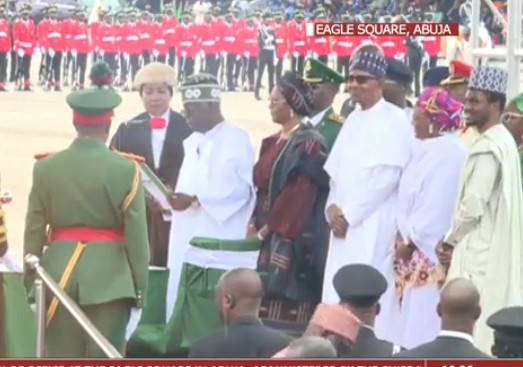Bola Ahmed Tinubu has been officially sworn in as the President of Nigeria, marking the beginning of a new era in the country’s political landscape. As one of Nigeria’s most prominent politicians and a key figure in the ruling party, Tinubu’s ascension to the presidency has sparked anticipation, hope, and a fair share of debate across the nation. In this blog post, we will delve into Tinubu’s journey, examine his political legacy, and discuss the potential implications of his presidency for Nigeria.
Tinubu’s Political Journey
Bola Ahmed Tinubu, popularly known as the Jagaban of Borgu, has had a long and influential political career that has spanned decades. Born on March 29, 1952, in Lagos State, Tinubu began his foray into politics in the 1990s when he joined the pro-democracy movement that fought against military rule in Nigeria. As a prominent member of the National Democratic Coalition (NADECO), he played an active role in advocating for democratic governance and human rights.
Tinubu’s political rise gained momentum when he was elected as the Governor of Lagos State in 1999, marking the beginning of his eight-year tenure. Under his leadership, Lagos experienced significant transformation, with improvements in infrastructure, education, and healthcare. His pragmatic approach to governance earned him accolades, and he became known as a shrewd and effective administrator.
Political Legacy and Contributions
Tinubu’s influence extends beyond Lagos State. He is widely recognized for his strategic contributions to the formation of the All Progressives Congress (APC), a merger of several opposition parties, which ultimately led to the defeat of the incumbent party in the 2015 presidential election. His astute political maneuvering and ability to build alliances have made him a formidable force in Nigerian politics.
During his time as the National Leader of the APC, Tinubu has played a significant role in shaping the party’s policies and ideologies. His commitment to progressive ideals, economic reforms, and anti-corruption measures has resonated with many Nigerians, garnering him both admiration and criticism.
Implications of Tinubu’s Presidency
With Tinubu’s swearing-in as the President of Nigeria, the nation is entering a pivotal phase in its history. His presidency holds the promise of economic reforms, infrastructure development, and renewed efforts to combat corruption. As a seasoned politician with a track record of successful governance, Tinubu is expected to bring his experience and expertise to bear on the numerous challenges facing the country.
However, it is important to acknowledge that Tinubu’s presidency is not without controversy. Some critics have raised concerns about his alleged influence over the political landscape, citing potential consolidation of power and lack of internal party democracy. As with any political leader, Tinubu will face the task of balancing diverse interests, addressing socio-economic inequalities, and promoting inclusivity.










